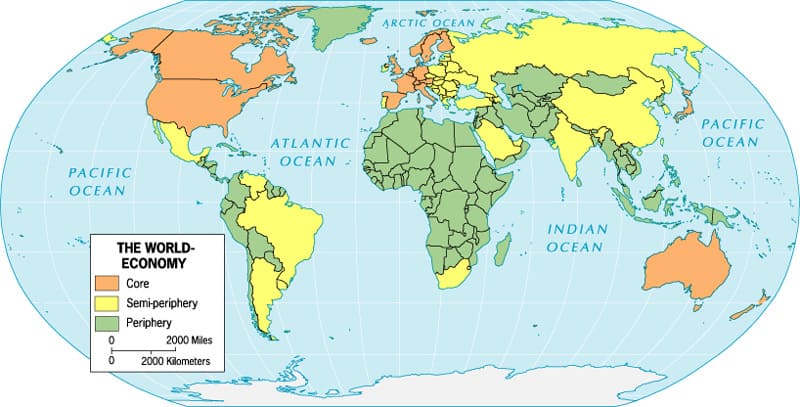World System Theory and Indian Business

Doing business these days is much more complex than having a proper financial, HR, product and Marketing plan. The strategies of most companies often are centered on these considerations. They believe that if they have a good product and a good marketing strategy and good people to sell them the business will bring in finances. They however forget one important aspect which is the legal system both domestic and international laws.
A recent HBR article discusses the need for executive to shape the rules of global commerce, such as trade agreements, through legal and political means. Countries and companies are not limited to certain geographic boundary any more. They are part of global system. Immanuel Wallerstain called it a world system where there are core, periphery and semi periphery systems and each of these are depended on each other. This is a dependency based system where each of these is depended on each other for their survival. Semi-peripheral nations are those that are midway between the core and periphery. Thus, they have to keep themselves from falling into the category of peripheral nations and at the same time, they strive to join the category of core nations. Therefore, they tend to apply protectionist policies most aggressively among the three categories of nations. They tend to be countries moving towards industrialization and more diversified economies. These regions often have relatively developed and diversified economies but are not dominant in international trade. They tend to export more to peripheral nations and import more from core nations in trade.
If we consider India as a semi-periphery country which on one hand to protect itself from being relegated to the peripheral nations and on the other hand which want to be considered among the developed nations need to tread a very delicate balance especially when it comes to understanding and following international legal systems that govern business. Indian companies are hard pressed to comply to scores of international compliance like ISO, SOX, OSHA, HIPPA etc..
The need for compliance is increasing and the cost of implementing these compliance too has gone up tremendously. The question then is, can the Indian companies afford all these compliances? Most of them are unable and in the process are being taken over or partnering with an international company. Many go bankrupt and close shop in the process. Mushrooming of startups probably is a way out where they know that they can sell their product to a big MNC eventually.
The danger in all these is that only a few will survive and they will be Large MNC/ TNC form the first world along with a few struggling Indian companies and if we predict the future from the Latin American experience we are staring at a possible bankruptcy and a relegation to the peripheral status.
So the question is whether to aspire for the core status through the developmental model (which have led to the underdevelopment of many countries) or to develop like what Gandhi taught us. Gandhi’s idea of small scale industries and development of self sustained communities is something our policy makers have long forgotten. The ideal of ‘Small is Beautiful” by Joseph Schumpeter probably is a possible way out of the complexities of the large scale international business.















